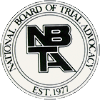U.S. Senate Committee Says GlaxoSmithKline Knew of Avandia Problems Years Before Made Public
On Saturday, the U.S. Senate Committee on Finance released a scathing report criticizing GlaxoSmithKline's drug Avandia and the FDA's role in protecting patients involved in an ongoing clinical trial over the Type-2 diabetes drug. The Senate report was developed over the last two years following a study published in the New England Journal of Medicine in May of 2007 that warned of cardiovascular risks posed by Avandia. Senate committee investigators reviewed more than 250,000 pages of documents provided by GlaxoSmithKline, the FDA, and several research institutes. Committee investigators also conducted numerous interviews and phone calls with GlaxoSmithKline, the FDA and anonymous whistleblowers.
Key findings by the Senate committee after reviewing hundreds of thousands of pages of internal GSK documents concluded: "The totality of evidence suggests that GSK was aware of the possible cardiac risks associated with Avandia years before such evidence became public.... Based on this knowledge, GSK had a duty to sufficiently warn patients and the FDA of its concerns in a timely manner. Instead, GSK executives intimidated independent physicians, focused on strategies to minimize findings that Avandia may increase cardiovascular risk, and sought ways to downplay findings that the rival drug ACTOS (pioglitazone) might reduce cardiovascular risks."
Senators also demanded the FDA describe what steps it had taken to protect patients involved in a Avandia clinical trial and questioned why the study is still recruiting patients since the FDA itself has linked Avandia to more than 83,000 excess heart attacks between 1999 and 2007. The Senate report says the FDA has overlooked or overridden safety concerns cited by its own officials, as appears to be the case with the ongoing Avandia study. As an example, FDA officials in 2008 called the clinical trial "unethical and exploitative" of patients.
"There's a real problem when FDA's office that reviews drugs that are on the market is an unequal player in drug safety efforts," Senator Charles Grassley (R-Iowa) said. "It doesn't make any sense to have these experts, who study drugs after they have been on the market for several years, under the thumb of the officials who approved the drug in the first place and have a natural interest in defending that decision. The Avandia case may be the most alarming example of the problem with this set-up. Both the FDA and Congress need to take every step possible to establish independence for post-market surveillance. The Institute of Medicine has made recommendations. It's a matter of sound science and public safety."
Click here to learn more about Avandia
Click here to read full U.S. Senate Press Release




















